Premium Only Content
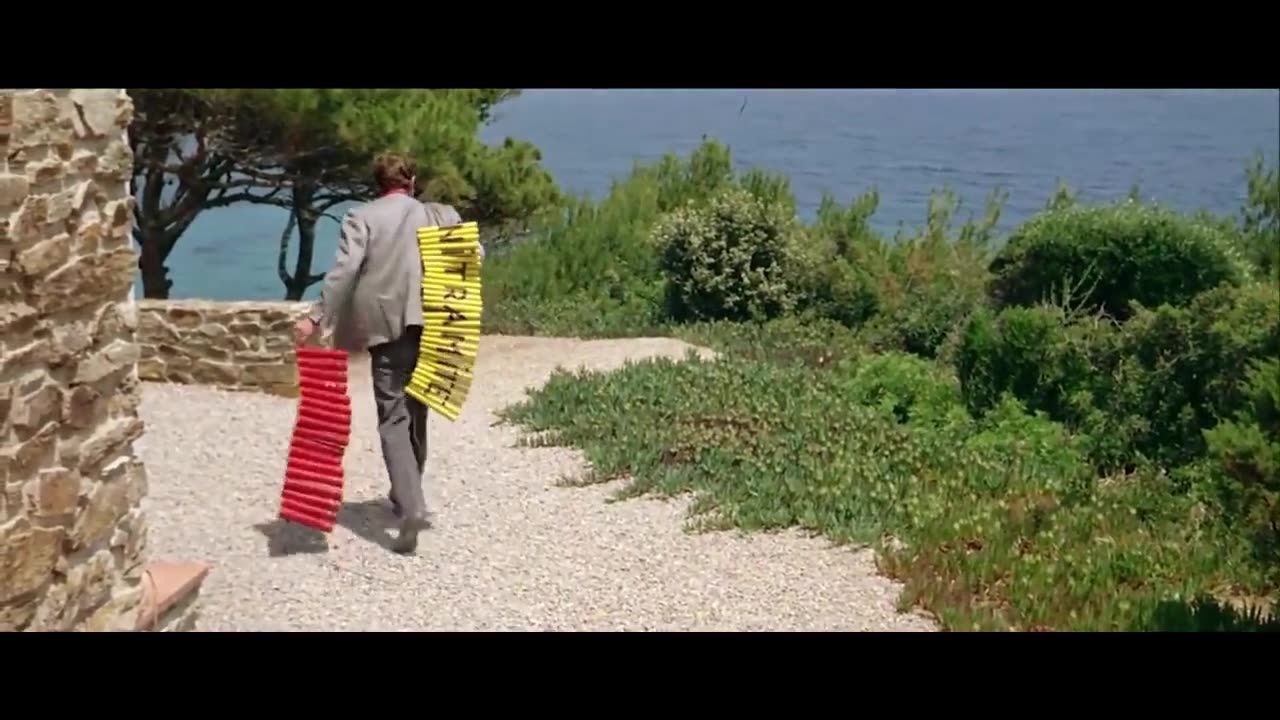
Aerosmith And Beatles Come Together
Come Together
Beatles Album: Abbey Road 1969
Aerosmith B-side of "Kings and Queens" single Released 31 July 1978
Timothy Leary was a psychologist who became famous for experimenting with LSD as a way to promote social interaction and raise consciousness. Leary did many experiments on volunteers and himself and felt the drug had many positive qualities if taken correctly. When the government cracked down on LSD, Leary's experiments were stopped and he was arrested on drug charges. In 1969, Leary decided to run for Governor of California, and asked John Lennon to write a song for him. "Come Together, Join The Party" was Leary's campaign slogan (a reference to the drug culture he supported) and was the original title of the song. Leary never had much of a campaign, but the slogan gave Lennon the idea for this song.
After Timothy Leary decided against using this song for his political campaign Lennon added some nonsense lyrics and brought it to the Abbey Road sessions. Paul McCartney recalled in Rolling Stone magazine's 500 Greatest Songs: "I said, 'Let's slow it down with a swampy bass-and-drums vibe.' I came up with a bass line, and it all flowed from there."
In a 1980 interview with Playboy magazine, John Lennon said: "The thing was created in the studio. It's gobbledygook. 'Come Together' was an expression that Tim Leary had come up with for (perhaps for the governorship of California against Reagan), and he asked me to write a campaign song. I tried and I tried, but I couldn't come up with one. But I came up with this, 'Come Together,' which would've been no good to him - you couldn't have a campaign song like that, right?"
John Lennon was sued for stealing the guitar riff and the line "Here comes old flat-top" from Chuck Berry's "You Can't Catch Me." The lawsuit did not come from Berry, but from Morris Levy, one of the music industry's most infamous characters (see our interview with Tommy James for more on Levy). He owned the song along with thousands of other early rock songs that he obtained from many poor, black, and unrepresented artists. Levy sued the Beatles, or more accurately, John Lennon, over the song around the time the Beatles broke up.
For years, Lennon delayed the trial while he and the Beatles tried to sort out all the legal and business problems that plagued Apple Records. Finally, in an attempt to avoid the court room as much as he could (Lennon felt like he was appearing in court more often than not), he settled with Levy. Lennon agreed to record his Rock N Roll album, which was just a series of cover songs, including three songs Levy owned (including "You Can't Catch Me") on the tracklist.
The deal made sense: Lennon always wanted to make a covers album, and Levy wanted the value of his songs to increase (when a Beatle re-records a song, that is just what happens). To make a long long long story short, Lennon recorded the album over the Lost Weekend, a year-or-two period when he was separated from Yoko Ono and lived in Los Angeles. During that time he was often drunk or high, and was rather sloppy and useless. Levy was getting frustrated with the lack of progress. Phil Spector was the producer, but in a fit of madness (which was not too unusual for Spector) he ran away and stole the recording session tapes. Levy invited Lennon to his upstate New York recording studio, and that is where he finally recorded the album, which ended up with only two Levy songs: "You Can't Catch Me" and "Ya Ya."
The whispered lyric that sounds like "shoot" is actually Lennon saying "shoot me" followed by a handclap. The bass line drowns out the "me."
The Beatles recorded this on July 21, 1969 and it was the first session John Lennon actively participated in following his and Yoko's car accident 3 weeks earlier. John was so insistent on Yoko being in the studio with him that he had a hospital bed set up in the studio for her right after the accident, since she was more seriously injured than he was. >>
The line "Ono sideboard" refers to Yoko.
The British Broadcasting Company (The BBC) banned this because of the reference to Coca Cola, which they considered advertising.
This has one of the most commonly misheard lyrics in the history of popular music: "Hold you in his -armchair- you can feel his disease." It's actually "Hold you in his arms, yeah, you can feel his disease." All published sheet music had the "armchair" lyric, including the inner sleeve of the 1967-1970 compilation, which contained lots of other errors too, notably on "Strawberry Fields Forever." After John heard that his lyric was incorrect in the sheet music and other folios, he decided he liked "armchair" better and kept it.
The Beatles released this as a "double A side" single with "Something."
In 1969, this won a Grammy for best engineered recording.
When rumors were spreading that Paul McCartney was dead, some fans thought the line "One and one and one is three" meant that only George, John and Ringo were left. The line "Got to be good lookin' cuz he's so hard to see" was supposed to be Paul's spirit.
A rotary phone was used to make the sound heard before each verse and after the chorus. The sound was accompanied by the bass Paul played. Kids, ask your parents or grandparents what a rotary phone was.
Aerosmith recorded this song with Beatles producer George Martin for the 1978 movie Sgt. Pepper's Lonely Hearts Club Band, which turned out to be one of the worst films ever made. Aerosmith appeared in the film performing this song (as the Future Villain Band), agreeing to the role only because they couldn't resist the chance to record a Beatles song with George Martin. They weren't the only big names in the film - Peter Frampton and The Bee Gees were also in it.
The Aerosmith version of "Come Together" made #23 in the US when it was released as a single. When we asked their guitarist Brad Whitford why some folks prefer the Aerosmith version, he replied, "I've actually never heard anybody say that." Whitford added, "But you know, it's funny, I hear our version more on the radio than I do The Beatles' version."
In 2001, Beck, Moby, Marc Anthony, and Nelly Furtado were scheduled to put on a tribute concert in Radio City Music Hall called "Come Together: A Night For John Lennon." Due to the terrorist attacks on America, it was postponed and dedicated to the people of New York City, with proceeds benefiting victims of the attacks.
Nortel used this in commercials, as did Macy's.
On an early demo version of "My Monkey" by Marilyn Manson (whose vocals were sped up to sound like "a demonic toddler"), Manson sang the second verse as an opener. It appeared on Demos in Lunchbox by Manson's former band, The Spooky Kids.
Ike & Tina Turner covered "Come Together" in 1970, taking the song to #57 in the US. That and the Aerosmith version are the only covers to chart, but Michael Jackson did a very popular version that he performed at the close of his 1988 concert film Moonwalker. His rendition appeared on his HIStory album in 1995.
Others to record the song include Meat Loaf, Guns N' Roses, Soundgarden, Marilyn Manson, Nazareth, and Oasis.
Though Ringo is best known for playing on Oyster Black Pearl Ludwig drum kit, he used for this his Ludwig "Hollywood" maple-finish equipment, with a 22" kick. Starr produced his distinctive late '60s drum muffling sound on tracks like this by wrapping tea towels (dishtowels) around his snares and toms.
The Arctic Monkeys performed the song during the London 2012 Olympic Games opening ceremony. Their version reached #21 on the UK singles chart in the week after the event.
On October 7, 2016, The Rolling Stones covered this song during their headline set at the Desert Trip festival in Indio, California. Before launching into the tune, Mick Jagger told the crowd: "We're gonna do a cover song of a sort of unknown beat group. I think you might remember [them], we're gonna try a cover of one of their tunes."
American band Aerosmith recorded one of the most successful cover versions of "Come Together" in 1978. The band performed the song in the 1978 film Sgt. Pepper's Lonely Hearts Club Band; their recording appeared on its accompanying soundtrack album. Released as a single in July 1978, Aerosmith's version was an immediate success, reaching number 23 on the Billboard Hot 100, following on the heels of a string of Top 40 hits for the band in the mid-1970s. However, it would be the last Top 40 hit for the band for nearly a decade.
Another recording of the song was released several months later on Aerosmith's live album Live! Bootleg. The song also featured on Aerosmith's Greatest Hits, the band's first singles compilation released in 1980. Their live performance from the 33rd Annual Grammy Awards ceremony was released in a Grammy compilation CD. The song has also surfaced on a number of Aerosmith compilations and live albums since then, as well as on the soundtrack for the film Armageddon.
-
 LIVE
LIVE
Vigilant News Network
1 day agoRFK Jr. Hearing EXPOSES Corrupt Politicians in Humiliating Scandal | Media Blackout
3,386 watching -
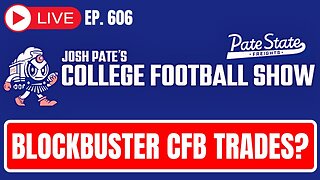 1:11:40
1:11:40
Josh Pate's College Football Show
7 hours ago $2.95 earnedPerfect CFB Conferences | Big Ohio State Changes | Canceling Spring Games | SEC 2025 Thoughts
39.8K -
 1:08:07
1:08:07
Bek Lover Podcast
5 hours agoInteresting Times with Bek Lover Podcast
18.7K -
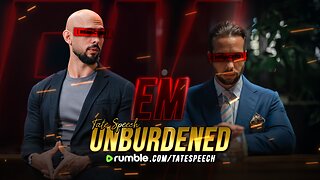 1:51:12
1:51:12
Tate Speech by Andrew Tate
8 hours agoEMERGENCY MEETING EPISODE 105 - UNBURDENED
164K80 -
 1:01:18
1:01:18
Tactical Advisor
11 hours agoBuilding a 308 AR10 Live! | Vault Room Live Stream 016
133K11 -
 2:17:02
2:17:02
Tundra Tactical
1 day ago $26.46 earnedTundra Nation Live : Shawn Of S2 Armament Joins The Boys
243K28 -
 23:22
23:22
MYLUNCHBREAK CHANNEL PAGE
2 days agoUnder The Necropolis - Pt 5
193K67 -
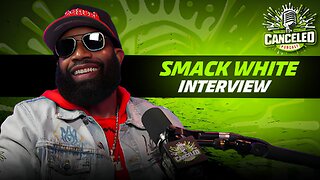 54:05
54:05
TheGetCanceledPodcast
1 day ago $14.35 earnedThe GCP Ep.11 | Smack White Talks Smack DVD Vs WorldStar, Battle Rap, Universal Hood Pass & More...
189K35 -
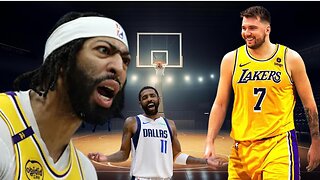 8:30
8:30
Game On!
15 hours ago $0.66 earnedLakers BLOCKBUSTER trade! Luka Doncic is coming to LA!
23.6K4 -
 48:29
48:29
hickok45
19 hours agoSunday Shoot-a-Round # 266
21.2K10